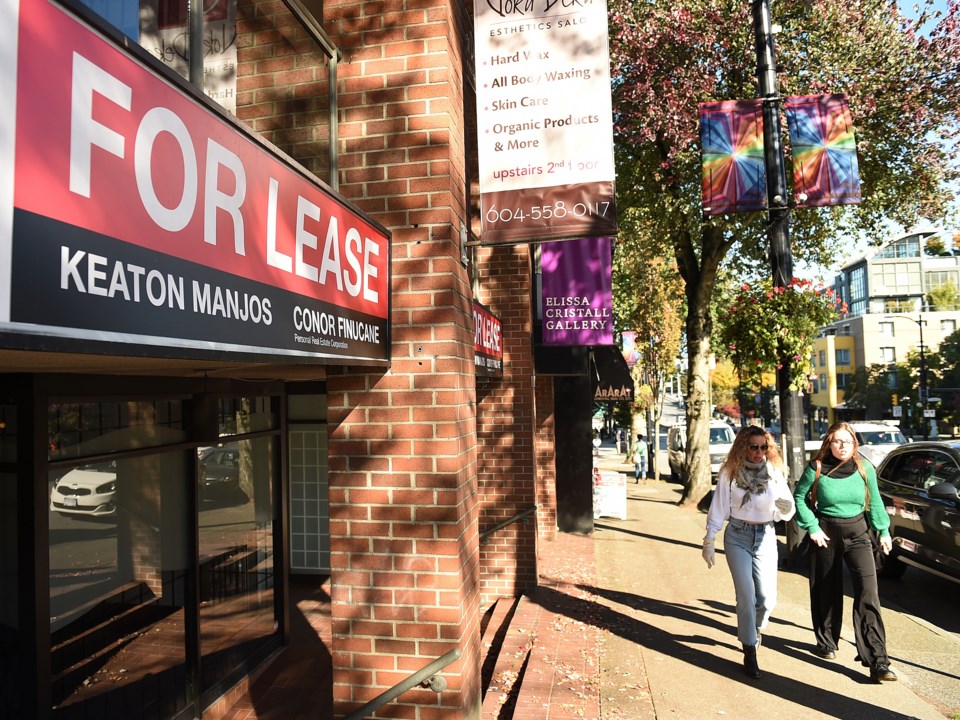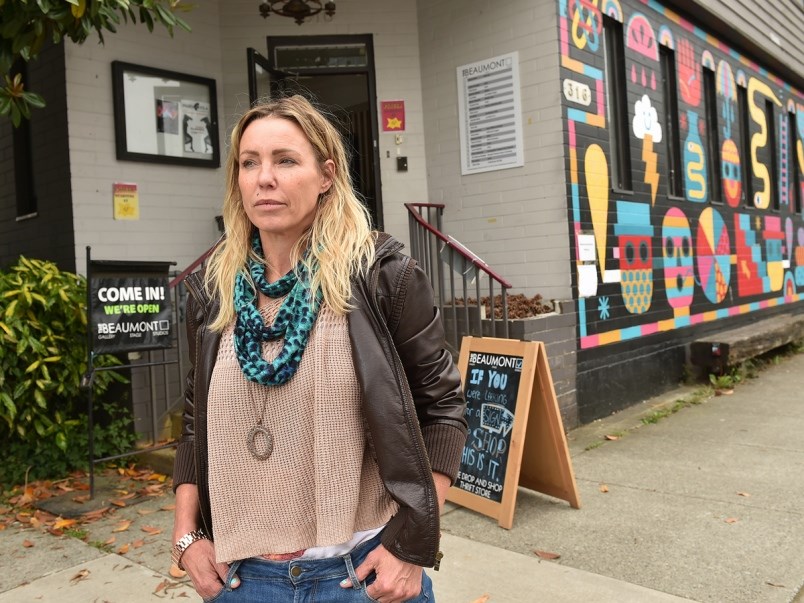If you have a conscience, and you care about the very soul of our city — those shops where the person behind the counter knows your name, where they make your coffee just the way you like it, or put aside the record you’ve been searching for, or cut your hair just right, or custom-craft a pair of boots that you’ll wear forever, or picks just the right read for your book club, or pours you a pint of IPA brewed 10-feet away — then you’ll have no doubt heard of the crisis independent business owners and non-profits face in this city.
The threat is massive, complicated, and overflowing with bureaucratic, buck-passing bullshit.
The first major problem is a horrid arrangement known as the “triple-net lease,” which appears to have existed since the beginning of time, back when what you built on the land — say, a car wash — might be worth more than the actual land itself. Most Vancouver businesses are forced into that aptly named net into in order to operate in this town.
Once you understand how a triple-net lease works, you’d have to wonder if Scrooge, Mr. Burns, Dr. Evil and Stalin all put their heads together to come up with such a “deal.”
Here’s how it works: YOU, the independent retailer, pay your LANDLORD’S property taxes.
Let me repeat that: in a triple-net lease, an upside down real estate shell game, YOU pay the property taxes on land and a building that you DO NOT own, and equity you will never benefit from. But that’s not all. The other poisoned prongs of the triple-net lease are that you also get to pay your landlord’s property insurance, and the building maintenance fees. And that’s all on top of your monthly lease/rental payment.
How’s that for the ultimate grift? Another name for this type of agreement is the “carefree lease.” Damn right it’s carefree: for your landlord, rolling around in your constant flow of cash while you roll around in a barrel and suspenders.
None of the real estate experts I spoke to could figure out exactly when the triple-net lease, a North America-wide practice, came into place, but it was probably sometime around the era depicted in Upton Sinclair’s 1906 book The Jungle.
But wait — it gets worse.
Up, up and away

Say you run your own bookstore, which has been an integral community hub for years. Your bookstore is in a run-down, one-storey building that your landlord never maintains, but it’s in a busy, tony, commercial neighbourhood with lots of foot traffic. The financial death knell in that last sentence is “one storey.”
Your store is caught in a domino effect created in part by lack of real estate, the need for housing and the city’s constant search for more. Where can we go but up?
Because of an outrageous assessment policy called “highest and best use,” it means that that your little bookstore in the dilapidated building is responsible for paying your landowner’s property tax on whatever that land might be zoned for: three storeys, six storeys, 10 storeys, 20 storeys. That’s right, you are not only paying your landlord’s property tax, but for some bizarre reason no one I could find could explain, your business is paying property tax on the potential of residential units that don’t exist.
Someone call Rod Serling.
And therein lies yet another burn: I’m no real estate expert, but if I understand this correctly, once a new building is constructed with, say, 30 condos and new retail spaces below, sometimes, according to one analyst I spoke to, the taxes can actually come down.
“Obviously, taxes shouldn’t exist until the building is there,” recently retired retail strategist Stan Boniferro told me in a phone call. He’s also an expert on lease agreements. “To tax on what isn’t there is a straight up money grab on the city’s part. It is absolutely ludicrous.”
Coquitlam mayor Richard Stewart is also very passionate about this issue and wants to see change on the provincial level, which controls property assessments.
“Businesses should not be responsible for ‘highest and best use,’” said Stewart. “It’s ridiculous that those are the rules we have to abide by. I don’t want that tax.”
Help is on the way?
On Jan. 17, the Ministry of Municipal Affairs and Housingissued a press release boasting the headline “Tax relief coming for small businesses, non-profits.”
It promised legislation this spring (probably right around when the first Uber arrives, driven by Casper the Friendly Ghost) that will apparently “give municipalities the ability to provide property tax relief to small businesses and organizations that they identify as paying high property taxes.”
The press release goes on to detail that the government will be “easing the tax burden for tenants responsible for property taxes through their commercial leases.”
Coquitlam’s Mayor Stewart is quick to caution calling the proposed legislation a “tax relief.” What actually might happen, he fears, is that the existing taxes will be shifted from one business to another.
“I’m worried it will cause other problems for many other businesses,” he said. “Which businesses get the tax break? It could mean municipalities are going to be forced to choose their favourite children, so to speak.”
Jude Kusnierz is the executive and creative director and founder of Beaumont Studios, a large arts space, studio and venue at West Fifth and Alberta. As previously reported in the Courier, she has been actively involved in the hunt for tax relief and tax exemptions for non-profits like hers for the past five years. Since 2014, her landlord’s property tax, which she pays, has increased from $45,000 to $110,000. She funnels her landlord $37,000 a month so she can stay in business. She’s also in the midst of bringing together several non-profit arts programs to create a citywide arts sector. The Beaumont was recently approved for a “crisis grant” from the city to stay in business.
Nowhere in the province’s press release does it mention anything about landlords paying their own property tax.
After many years in the retail strategy business, Boniferro says it’s still possible to avoid a triple-net lease, even in Vancouver, and offers the following advice to prospective small business owners:
- Find a street location with good foot traffic that hasn’t yet gentrified (which at this point might be… the 00 block of East Hastings?)
- Avoid malls. Some slap a five per cent management fee on top of everything else, as well as a potential percentage of your profits.
- Don’t sign a demolition clause.
- Try to get the landlord to agree to a “semi-net lease,” where the property tax is included in the rent, which can protect you from assessment spikes.
- In exchange, agree to a two per cent rent increase on an annual basis over a five-year term.
And even though Kusnierz at the Beaumont is caught up in a triple-net-lease, she manages to have a positive outlook.
“The system is very slow moving, but we’re so far into this, I honestly have faith in this Vancouver city council,” Kusnierz told me. “I have to believe that something is finally going to happen.”
If it doesn’t, you can say goodbye to the soul of this city.



